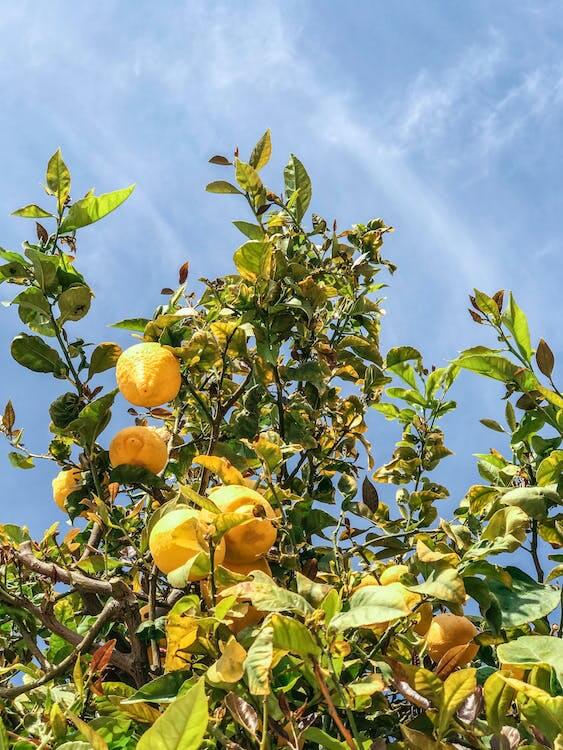Have you ever wondered what it would be like waking up to the invigorating aroma of citrus wafting through your bedroom window in the morning? Or walking past branches laden with ripe, colorful fruit just waiting to be harvested by you?
You can have both!
By planting citrus trees into your home garden and landscape, you can enjoy a plethora of benefits that come with cultivating these green delights. From adding visual interest to supporting personal health, let’s dive into the world of homegrown citrus and discover how these trees can enrich your life
1. Beauty Meets Functionality
Fruit trees, especially citrus varieties, offer both beauty and functionality for your landscape. The vibrant colors of the fruit contrast against the lush green foliage, making citrus trees a visually striking addition to any garden. Plus, their intricate branching patterns and evergreen nature ensure year-round visual interest in your outdoor space.
2. Health and Nutritional Value
Citrus fruits are brimming with vitamins and antioxidants essential for maintaining a healthy immune system and overall well-being. For example, oranges and grapefruits are rich in Vitamin C, a vital nutrient for bolstering immune health. Homegrown citrus can taste even better than store-bought, as you can harvest the fruits at their peak ripeness for maximum flavor, juiciness, and nutritional value.
3. Environmental Benefits
Cultivating fruit trees in your home garden means reducing your carbon footprint. When you grow your own fruit, you help to minimize the transportation required to bring produce from farms to your table. Additionally, trees act as natural air purifiers, absorbing harmful emissions and releasing oxygen back into the atmosphere.
4. Fresh and Delicious Fruit
There’s nothing quite like harvesting and enjoying fruit from your very own garden. Juicy oranges, tangy lemons, or sweet tangerines — however you choose to savor them, there’s no denying that the freshness of homegrown fruit cannot be replicated. These fruits can also be preserved and used in countless recipes, from refreshing beverages to delicious desserts and salads.
Top10 Fruit Trees (our recommendations)
To help you choose the perfect citrus tree for your garden, here are ten popular and widely-loved varieties worth considering:
1. Meyer Lemon: These compact trees produce a sweeter, less acidic lemon, making them idal for a range of culinary dishes and perfect for small gardens or containers.
2. Navel Orange: Known for their sweet, seedless fruit and easy-to-peel skin, Navel oranges are a home garden favorite.
3. Blood Orange: Producing unique, crimson-colored fruit with a raspberry-like flavor, blood oranges are a striking and delicious addition to any garden.
4. Eureka Lemon: With their classic tart flavor and year-round fruit production, Eureka lemons are perfect for culinary enthusiasts and home gardeners.
5. Satsuma Mandarin: Cold-hardy and sweet, these seedless mandarins are easy to peel and perfect for snacking.
6. Calamansi: Also known as calamondin or Philippine lime, this small, fragrant fruit adds a unique twist to traditional citrus trees.
7. Ruby Red Grapefruit: This hardy variety produces large, juicy fruits with a sweet, red flesh, adding a burst of color and flavor to your home garden.
8. Kaffir Lime: Prized for their aromatic leaves used in Asian cuisine, Kaffir lime trees also produce bumpy, uniquely flavored fruit.
9. Key Lime: A popular choice for pies and desserts, key lime trees are compact and perfect for small spaces or growing in containers.
10. Tangelo: A cross between a tangerine and a grapefruit, tangelos boast sweet, easy-to-peel fruit, making them a delicious and attractive option.
Cultivating the Perfect Citrus Haven
Now that you’re inspired to transform your garden into a citrus haven, it’s essential to understand the factors that play a key role in the successful growth of these trees:
1. Climate and Location
Citrus trees thrive in warm, sunny climates, making them ideal for locations where temperatures don’t drop too low.
It’s crucial to understand the specific climate requirements for fruit trees, as some, like the Cantaloupe, are cold-sensitive. On the other hand, some varieties, like the Pomegranate, can tolerate colder temperatures with appropriate care. Fortunately, a lot of the aforementioned citrus trees can grow in most climates. Having said that, you should definitely do some research before you buy the tree of your choice.
2. Soil and Water
Well-draining soil is vital for healthy citrus tree growth, as wet roots can lead to diseases and root rot. Regular, deep watering is the key to success with citrus trees, keeping the soil consistently moist but not overly wet. Adding mulch around the tree base can also help with moisture retention and temperature regulation.
3. Pruning and Maintenance
Regular pruning encourages a healthy branching structure, improved air circulation, and optimal fruit production. This can involve removing dead, damaged, or diseased branches, promoting a strong tree structure and enabling sunlight to reach all parts of the tree.
The Citric Takeaway
The impact of adding citrus trees to your home garden and landscape goes far beyond the luscious fruit they produce. These trees offer an array of benefits – from their striking appearance and evergreen foliage to the valuable boost they provide to personal health and the environment.
By focusing on climate, soil, and proper maintenance, you’ll create a thriving, fruitful oasis in your very own backyard, making it easy to see why growing citrus trees is a remarkable addition to any home. So, step outside and begin planning your citrus sanctuary today – your taste buds, health, and planet will thank you.

